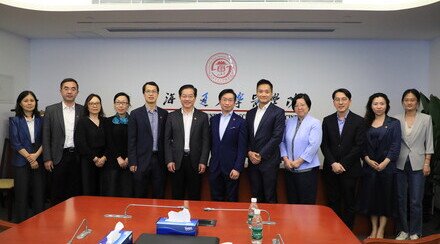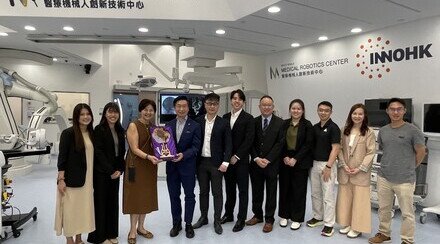
CCOUC Trip to Xishuangbanna, Yunnan Period: March 2016
Name: KUAN, David Junior
Attachment: CCOUC Trip to Xishuangbanna, Yunnan
Period: March 2016
On March 12th to March 17th, 2016, I had the privilege to embark on a six-day humanitarian medical trip to a remote village called Manbangtang, situated in Xishuangbanna (西雙版納), Yunnan. Organized by the Collaborating Centre for Oxford University and CUHK (CCOUC), the trip consisted of 38 participants from an extensive range of backgrounds, including medical students from CUHK and HKU, public health students, a pharmacy student, registered nurses, and even four visiting students from the Harvard school of public health.
As CCOUC's fourth trip into this particular village for their ethnic minority health project, there were a multitude of overall objectives that were fulfilled in our visit. The team spent two days conducting questionnaires evaluating the residents' living environment, health practices, effectiveness of previous visits and interventions, and demographics. A health intervention was organized for the third day in the village, teaching the villagers the importance of limiting salt intake, preparing a disaster kit, and cutting down on smoking. In addition to our humanitarian work, we underwent a series of training sessions and masterclasses organised by both CCOUC and Yunnan Medical University, teaching us about the cultural intricacies of Xishuangbanna, China's public health system, public health on a global scale, and more.
During this six-day trip, I have gotten to know a swarm of interesting and fascinating people, all of whom have contributed to my constantly revised understanding and projections towards the future. A couple of key reflections particularly stood out in this trip, of which I would like to share here.
In the context of an increasingly globalized world (and in a "global stream!"), it has always fascinated me how people originating from diverse backgrounds can connect with each other. In this trip I discussed politics with an American, exclaimed quotes from famous movies with a Brazilian, and shared experiences with an Austrian. I shared a room with a student who had studied in four different countries. No longer is humanitarian work, even in a scale as bottom-up as conducting surveys in a remote village in rural china, strictly a local endeavour: I have learned that the heart to help others knows no national boundaries.
But what I am reminded most of from this trip is the vast complexity and variance in culture we can get within our own country. It is easy to hold a nation to a particular stereotype when we dream amongst the global scale; we often fail to realize just how beautiful and elaborate our own country can be. Even with our translators, who are all fluent with Mandarin, Yunnan dialect and the ethnic 'dai' language, we still faced the struggle of communicating with the villagers as they had their own 'blang' dialect. The written words resemble Thai rather than Han characters, illegible to people like me. Their local medical practices are equally fascinating: whereas the typical western practitioner would suggest oral rehydration solutions (water + sugar + salt) for treating diarrhea, the village had their own method of boiling guava leaves for the same effect. There is so much that we, as medical students or just as normal people, can learn by observing the culture of others.
The above learning should not be thought of as a unilateral benefit either, because if we remain observant and humble, that is when the greatest change can occur. Our interviews with the villagers were not discussions, per se, but rather conversations. Each villager had their own unique and memorable story that should be heard, and in return, the trust that we had established led directly to in-depth responses and showing up for our intervention, the first step towards changing their long-standing habits and practices. Professor Jiao Feng of Yunnan University perhaps summarized this the best: "欲化農民,先農民化".
This trip has also solidified the necessity for public health in my mind. It is easy to adopt a defeatist attitude and believe that "no matter how much NGOs and humanitarian groups can try, they can never change the habits of a population". How can we, a small group of students and health workers, stop people from following a habit as ingrained into Chinese culture as smoking? Surely it can never happen!
It can happen. I now believe it can happen. I have become convinced that change is possible after this trip, and that all our efforts are not in vain. To quote a good friend of mine (fellow GPS student Dawnie Lau): "I discovered the meaning of conducting public health fieldwork - the point being that one should not do public health work for the sake of witnessing a direct outcome, but rather, do something that you believe is worthwhile and correct."
I remember the face of one villager after I, playing the role of a deadbeat smoker addict, threw my makeshift cigarette prop in an act of defiance and exclaimed that I would quit smoking. His once cheerful demeanour turned into an expression of shock and distress; I knew the message had gotten to him. Even if only one villager vowed to quit their ways, it is one villager more than if we never even tried. To quote Professor Jiao Feng again: "做,未必會有成果;不做,必定不會有成果。"
To those reading this reflection, I implore you to take the time to explore all the opportunities given to you, even if humanitarian endeavours are not on your mind (it certainly was not on mine beforehand!). After all, how can you "purify your passion", as Professor Vincent Mok eloquently put, if you never try out all your options?
I would like to thank the faculty, CCOUC staff, and in particular Professor Emily Chan, for allowing me to participate in this unforgettable trip. Here's to hoping that there is more for the future.










